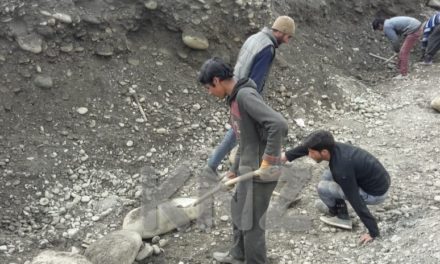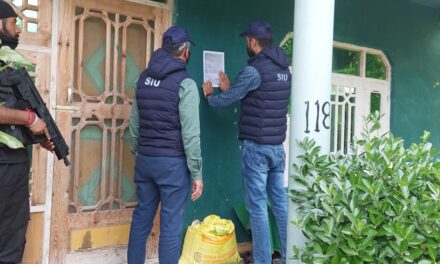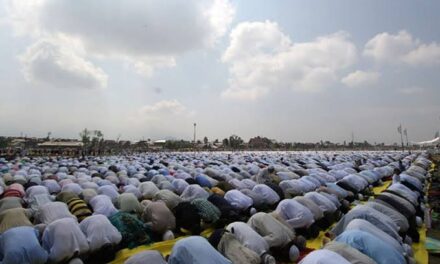![]()
Srinagar:
Keeping with tradition on Mahashivaratri, the meteorological department in Jammu and Kashmir has forecast snowfall and rains on the night of the annual festival.Mahashivaratri or Herath as it is known locally, which falls on the intervening night of February 20-21, is a festival celebrated annually to honour Lord Shiva and also marks the day of the marriage between Lord Shiva and Goddess Parvati.
In a weather bulletin issued on Wednesday, the meteorological department’s director Sonam Lotus said, “Friends, greetings to all on the auspicious occasion of Maha Shivratri 2020. The day is unique, special and auspicious from the weather point of view.”“Almost every year, Jammu and Kashmir experiences light to moderate rains and snowfall on this day.
This year as well, we will be blessed with light to moderate rain in the plains and snowfall over the higher reaches of J&K and Kargil districts of Ladakh during the next 24 to 36 hours on this auspicious day of Maha Shivratri (February 20-21),” the director added.On Wednesday, light rain and snow will commence in the evening at some places of the Union Territory and gradually increase in intensity and cover more area peaking on Thursday decreasing gradually thereafter, he said.Some places in the plains of Jammu region may experience thunderstorms on Thursday, the official added.The rains may lead to landslides in Banihal-Ramban axis leading to temporary disruptions of surface transportation, Lotus said.Known as Herath in Kashmir, Mahashivaratri is held on the 13th night (waning moon) and 14th day of the month of Phalguna. In the Gregorian calendar, the day falls in either February or March and marks Mahashivaratri which means “the Great Night of Shiva”.In Kashmir Shaivism, Mahashivaratri is celebrated by the Hindus of Kashmir and is known as Herath in Kashmiri, a word derived from the Sanskrit word “Hararatri” or the “Night of Hara” (another name of Shiva).Prayers held on the day after nightlong Mahashivaratri are called ‘salaam’.A legend connected with snowfall on Mahashivaratri goes back to the rule of Afghans in the 18th century. It continues till date as a tradition of mocking the last Afghan governor Jabbar Khan, who ruled Kashmir in the 18th century.According to history, the word ‘salaam’ got incorporated in Kashmiri Pandits’ tradition when Jabbar Khan forced them to celebrate ‘Mahashivaratri’ in July.It is said that Jabbar Khan told people that he wanted to see whether it would snow if the festival is celebrated in the summer.It snowed that day surprising people who later came to pay obeisance to the Vatak Razae (Lord Shiva) and offer their ‘salaam’. (PTI)
























